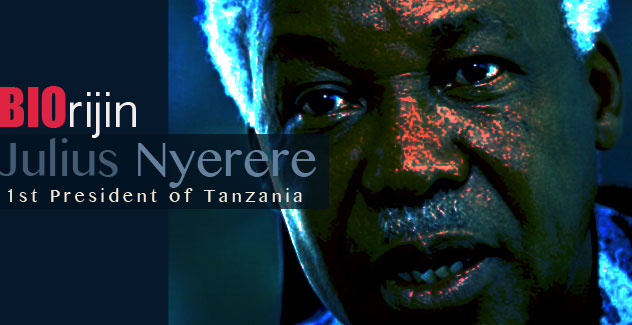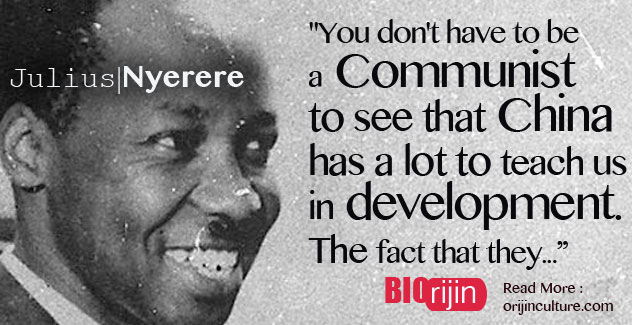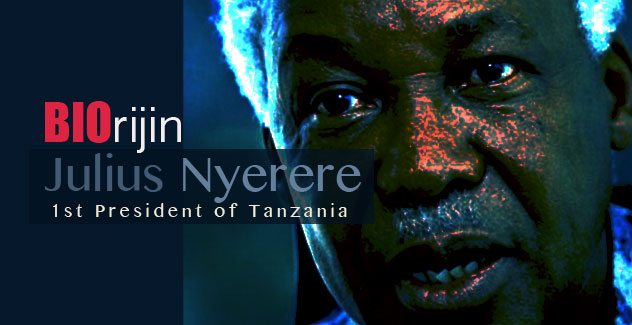
Read and ponder these words of wisdom; “only evil, Godless men would make the color of a man’s skin the criteria for granting him civil rights,” and “a man is developing himself when he grows, or earns, enough to provide decent conditions for himself and his family; he is not being developed if someone gives him these things.”
Well these were some of the timeless thoughts of your great grandfather, Julius Nyerere. It’s a shame you never met him in person but death does not erase the footprints of the dead from the sandy shores of life.
Nyerere was born to a Chief Burito Nyerere of the Zanaki and his wife Mgaya Wanyang’ombe of the Zanaki in Tangyanika, Tanzania. Growing up, he came face to face with Black oppression in his own land of birth and to that he pledged his life’s labor to the redemption of his people. His nationalistic principles were founded on building a multi ethnic political force, non-violence and the building of both political and social unity. And to these ideals, Papa Nyerere devoted his life.
His much learning enabled him become the First African from the Tangyanika, to earn a degree from the University of Edinburgh, but the trappings of Britain’s greener pastures could not keep him from returning to the political wilderness his people laboured in.

His political fortitude paid him good dividend and not long after, the process of the independence struggle was on course. At times he got impatient and resigned from the Tangyanika Legislative Council. In spite of these he did not lose sight of the surety of the struggle’s success prophesying to his followers; “Independence will follow as surely as the tickbirds follow the rhino.”
True to this prophecy, independence came to Tanzania on 9th December, 1961, Tanzania became free and he took up the burden of its Prime Minister. I am more interested in the ideals Nyerere espoused in government. He did well to hear every shade of opinion in his government as akin to the African traditional system, he promoted the Africans communal spirit and ardently favored socialism whiles giving great support to other African Nationalist movements such as the African National Congress in South Africa. He was a founding father of the African Union a duty he owed to other African states for he himself had been greatly inspired Ghana’s Kwame Nkrumah.
He was honored Father of the Nation and earned great recognition such as the Gandhi Peace Prize in 1995, the Lenin Peace Prize and many more. He received the Nehru Award for International Understanding in 1976, the Third World Prize in 1982.
Whiles Tanzania lives, Nyerere lives, good men never die and true to his native name, Kambarage meaning, “the spirit which brings rain”, he brought living waters to the nation’s thirsty soul.
Julius Kambarage Nyerere (13 Aprile 1922 - 14 Ottobre 1999)
Asumadu-Daniel
Ultimi post di Asumadu-Daniel (vedi tutti)
- Africa, Faccia in avanti con Kwame Nkrumah - Marzo 6, 2015
- Duboising l'African Pride : Conosci niente ma un NIGGER - Dicembre 14, 2014
- Lumumba Said It, One Day Africa scriverà la propria storia - Dicembre 10, 2014




